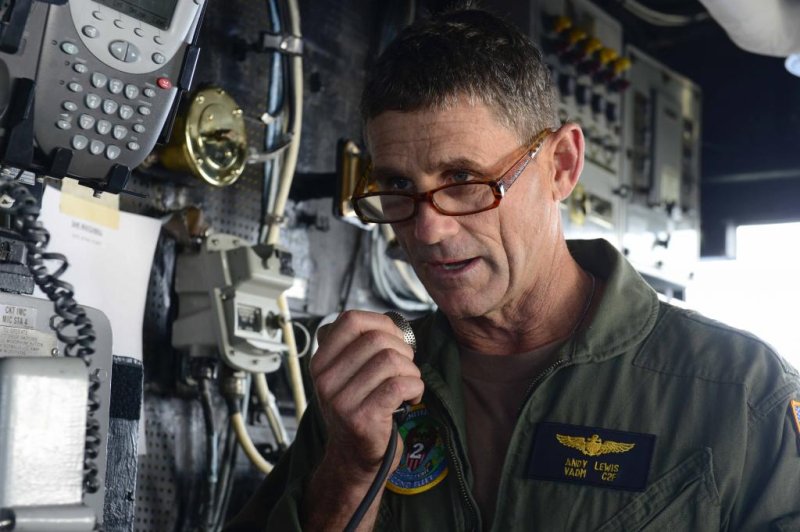Vice Adm. Andrew "Woody" Lewis, pictured aboard the USS Normandy in 2018, declared the re-established U.S. 2nd Fleet officially operational on Wednesday. File Photo by Mass Communication Specialist 3rd Class Michael Chen/U.S. Navy
May 30 (UPI) -- The U.S. Navy's 2nd Fleet has reached initial operational capability a year after it was re-established, the branch announced late Wednesday.
The 2nd fleet was brought back last May as a "leaner, agile and more expeditionary," fleet, Rear Adm. John Mustin said, to support North Atlantic and Arctic operations after being deactivated in 2011.
Vice Adm. Andrew "Woody" Lewis, who leads command for the re-established fleet, declared Wednesday at Naval Station Norfolk, Virginia, that the fleet has achieved IOC.
"The North Atlantic has some of the world's busiest shipping lanes, and with the opening of waterways in the Arctic, this traffic will only grow," Lewis said in a statement. "This is a fact acknowledged by our allies and competitors, and as such, it is critically important U.S. 2nd Fleet reinvigorates the way our forces are employed in this influential theater."
The IOC designation means its capable of commanding and controlling naval forces, the Navy said, adding that it would be "focusing on the high-end training and employment of assigned assets," ahead of a large exercise in the Baltics next month.
"The new 2nd Fleet will be postured to support the employment of forces, whether that is on the Western side of the Atlantic, the Eastern side of the Atlantic, or up into the Arctic," the Navy said.
"A few days after achieving IOC, the new fleet with lead Exercise Baltic Operations (BALTOPS), marking the first time the fleet with operate in the European theater, and leveraging increased lethality, interoperability and integrated warfighting capability with allies and partners in the region."
The two-week Baltic exercise starts on June 7 with approximately 50 naval assets.
"BALTOPS 2019 is our collective opportunity to promote peace and security through cooperation, collaboration, interoperability, and an unambiguous display of strength in the Baltic region," Lewis said. "As an alliance, increasing our capabilities across all-domains as well as building a command-wide network will give us the ability to deter aggression and project stability."















